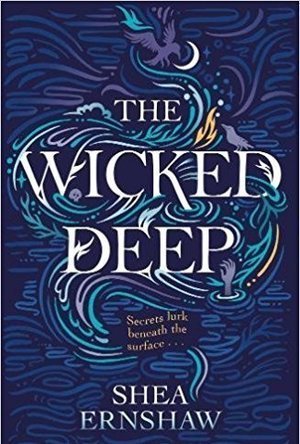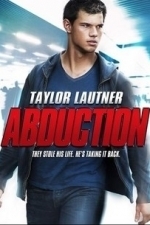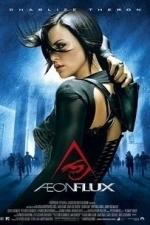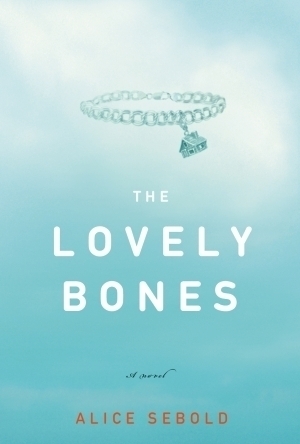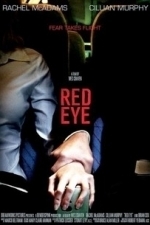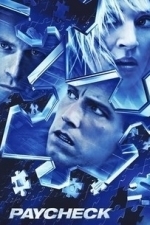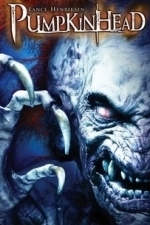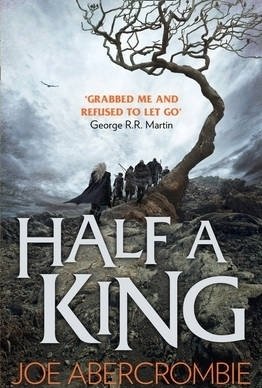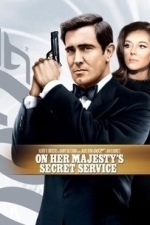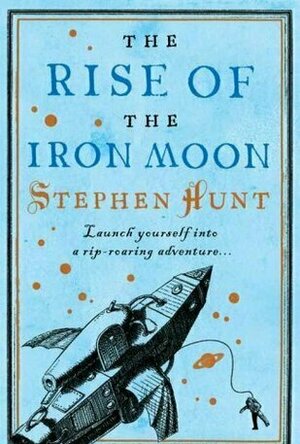Search
Search results
Christina Haynes (148 KP) rated The Wicked Deep in Books
Mar 26, 2018
The Wicked Deep
By Shea Ernshaw
Review: Christina Haynes
Two centuries ago, three sisters, Marguerite, Aurora and Hazel Swan arrived on the coast of a town called Sparrow. There they made their new home, in the back of a perfumery shop which they owned and would create and sell beautifully smelly perfumes. However, this isn't the only thing that they did so well. They made men fall in love with them instantly, it didn't matter if they were older than them, if they were betrothed or married, they all fell in love with the sisters. Some people from the town claimed they were witches, others knew it. But the truth was the sisters were not witches, yet.
In June they were drowned for witchcraft, they had stones tied to their feet and pushed into the sea and died. But every year after that on June 1st the day they were all born - one year apart. They come back from the sea for revenge on the town that killed them. They take control of three girls and each murder a boy, by making the boy fall in love with them. They then call the boy into the sea and he drowns like they did weeks after their birthday. These weeks are called 'The Swan Season'
The girl's whose bodies they possess have no idea that they have become a Swan Sister and no one else knows either. Only the Swan Sisters know. Even the boys are unable to tell they are being drawn to their deaths. You see the sisters weren't witches before their deaths, but in a way, they were after them. By being drowned into the sea, they live their deaths under the waves at the bottom of the Pacific. They then reprise on to land in the month of June like magic.
Penny Talbot can see the sisters, she is the only person who can. Year after year for three years she has been able to see them underneath the girls whom they possess. Like many locals she as accepted the towns fate, that is until a boy names Bo arrives in town looking for work and a place to stay does she soon start to fall for him and realise that he is not safe, because the sisters don't just kill the boys who are from this town they take any boy who arrives. Tourist for the Swan Season, local or even just a visitor it doesn't matter, as long as they cannot resist the call of the sisters, and no one is unable too.
Penny must decide if she will save Bo from the Swan Sisters and keep him safe, or save herself.
Love, Christina
4 – I REALLY LIKED IT
By Shea Ernshaw
Review: Christina Haynes
Two centuries ago, three sisters, Marguerite, Aurora and Hazel Swan arrived on the coast of a town called Sparrow. There they made their new home, in the back of a perfumery shop which they owned and would create and sell beautifully smelly perfumes. However, this isn't the only thing that they did so well. They made men fall in love with them instantly, it didn't matter if they were older than them, if they were betrothed or married, they all fell in love with the sisters. Some people from the town claimed they were witches, others knew it. But the truth was the sisters were not witches, yet.
In June they were drowned for witchcraft, they had stones tied to their feet and pushed into the sea and died. But every year after that on June 1st the day they were all born - one year apart. They come back from the sea for revenge on the town that killed them. They take control of three girls and each murder a boy, by making the boy fall in love with them. They then call the boy into the sea and he drowns like they did weeks after their birthday. These weeks are called 'The Swan Season'
The girl's whose bodies they possess have no idea that they have become a Swan Sister and no one else knows either. Only the Swan Sisters know. Even the boys are unable to tell they are being drawn to their deaths. You see the sisters weren't witches before their deaths, but in a way, they were after them. By being drowned into the sea, they live their deaths under the waves at the bottom of the Pacific. They then reprise on to land in the month of June like magic.
Penny Talbot can see the sisters, she is the only person who can. Year after year for three years she has been able to see them underneath the girls whom they possess. Like many locals she as accepted the towns fate, that is until a boy names Bo arrives in town looking for work and a place to stay does she soon start to fall for him and realise that he is not safe, because the sisters don't just kill the boys who are from this town they take any boy who arrives. Tourist for the Swan Season, local or even just a visitor it doesn't matter, as long as they cannot resist the call of the sisters, and no one is unable too.
Penny must decide if she will save Bo from the Swan Sisters and keep him safe, or save herself.
Love, Christina
4 – I REALLY LIKED IT
Darren (1599 KP) rated Abduction (2011) in Movies
Jun 20, 2019
Story: Abduction starts as we meet rebellious high school student Nathan (Lautner) that is under strict training from his parents Kevin (Isaacs) and Mara (Bello) as well as his therapist Dr Bennet (Weaver) helping him control his anger problems. Nathan gets assigned to work with his high school crush Karen (Collins) in the latest project, which involved looking at missing children’s websites only to discover one of the kids looks just like him.
When Nathan learns the truth, he finds himself getting targeted and Nathan is wondering just who to trust with Dr Bennett, Agent Burton (Molina) or Kozlow (Nyqvist) in what will turn into a race against time to find safety.
Thoughts on Abduction
Characters/Performance – Nathan is a rebellious high school student, struggling with girls, studying and generally fitting in. he learns that he is in fact adopted but this opens the doors for people coming to capture him leaving him one option, running. Karen is the crush of Nathan and ends up in the middle of the chase also running for her life. Burton is the CIA operative trying to bring Nathan in before Kozlow can get his hands on him. Kozlow is a European enemy that came to America in search for Nathan for bargaining, nothing overly fancy about this character. Dr Bennett, Mara and Kevin all have a secret about what is going on with Nathan.
Performance wise, we all know Taylor Lautner isn’t known for his acting and it does clearly show here. Lily Collins is similar, while she has come a long way now back here she struggles. When we look at the older respected actors we get good supporting performances without shinning on any levels.
Story – The story follows the idea of a teenager learning his parents are not his parents leaving him on the run from enemies he doesn’t know who to trust. Having two teenagers outsmart CIA, international enemies and normal cops does come off rather farfetched which in places does nothing but disappoint in this film. as for entertainment value, this is simple enough for the fans of the genre.
Action/Mystery – The action is everything you expect with no extra special moments but the mystery about Nathan’s true identity is what is the only interesting part of the film.
Settings – Being on the run leaves us going through a string of generic settings for this type of film.
Special Effects – All the effects are fine without being anything special.
Final Thoughts – This is a film that has its flaws sure, but once it gets going it can become an edge of your seat thriller.
Overall: Simple, average and forgettable action film.
https://moviesreview101.com/2018/01/23/abduction-2011/
When Nathan learns the truth, he finds himself getting targeted and Nathan is wondering just who to trust with Dr Bennett, Agent Burton (Molina) or Kozlow (Nyqvist) in what will turn into a race against time to find safety.
Thoughts on Abduction
Characters/Performance – Nathan is a rebellious high school student, struggling with girls, studying and generally fitting in. he learns that he is in fact adopted but this opens the doors for people coming to capture him leaving him one option, running. Karen is the crush of Nathan and ends up in the middle of the chase also running for her life. Burton is the CIA operative trying to bring Nathan in before Kozlow can get his hands on him. Kozlow is a European enemy that came to America in search for Nathan for bargaining, nothing overly fancy about this character. Dr Bennett, Mara and Kevin all have a secret about what is going on with Nathan.
Performance wise, we all know Taylor Lautner isn’t known for his acting and it does clearly show here. Lily Collins is similar, while she has come a long way now back here she struggles. When we look at the older respected actors we get good supporting performances without shinning on any levels.
Story – The story follows the idea of a teenager learning his parents are not his parents leaving him on the run from enemies he doesn’t know who to trust. Having two teenagers outsmart CIA, international enemies and normal cops does come off rather farfetched which in places does nothing but disappoint in this film. as for entertainment value, this is simple enough for the fans of the genre.
Action/Mystery – The action is everything you expect with no extra special moments but the mystery about Nathan’s true identity is what is the only interesting part of the film.
Settings – Being on the run leaves us going through a string of generic settings for this type of film.
Special Effects – All the effects are fine without being anything special.
Final Thoughts – This is a film that has its flaws sure, but once it gets going it can become an edge of your seat thriller.
Overall: Simple, average and forgettable action film.
https://moviesreview101.com/2018/01/23/abduction-2011/
Darren (1599 KP) rated Aeon Flux (2005) in Movies
Jun 20, 2019
Story: We get a future world where humans have been nearly wiped out by a virus, good start. We have information about a dictator who has taken over because he had the cure of the virus and making sure his family stays in charge, Aeon is hired to kill him so a change can happen, but the first of many twists stops this. We have two people that both sides in a potential war want dead but these two hold the secret that could save mankind forever. We have seen it all before and in the future world we struggle to see a truly original idea, the twists save this from being plain boring but with very little use of supporting characters we don’t get much here. (6/10)
Actor Review
Charlize Theron: Aeon Flux deadly assassin who is assigned to kill Trevor Goodchild, but when she has a past connection with him she helps him uncover a truth that can change the future forever. Solid performance trying to make something out of a little known source material. (7/10)
aeon
Marton Csokas: Trevor Goodchild leader of the people who has cured the remaining people of a deadly virus but he is still working to uncover a truth that could save the peoples real future. Good performance in the supporting scientist role. (7/10)
trvor
Johnny Lee Miller: Oren Goodchild brother of Trevor who has always supported him but when the future could change he plans to take over and keep things running as before. Good villainous role wanting to make sure he can live forever. (7/10)
ohnny
Director Review: Karyn Kusama – Creates a basic entertaining film that never really challenges the audience. (5/10)
Action: Plenty of action but most is the same each time. (7/10)
Sci-Fi: Interesting look at the future after a virus that looks at many different parts of it including improving surviving. (7/10)
Settings: We are in one city for the whole film but it really doesn’t get used as well as it should have been. (6/10)
Special Effects: Basic special effects used in Aeon Flux with most of it being upgraded technology. (7/10)
Suggestion: I think this could be tried, it isn’t as good as it could be but can be entertaining at times. (Try It)
Best Part: Aeon entering a poisonous garden.
Worst Part: Been here seen that.
Action Scene Of The Film: Final battle
Believability: No (0/10)
Chances of Tears: No (0/10)
Chances of Sequel: No
Post Credits Scene: No
Oscar Chances: No
Box Office: $52 Million
Budget: $62 Million
Runtime: 1 Hour 33 Minutes
Tagline: The future is flux.
Overall: Fun but not original action
https://moviesreview101.com/2014/11/16/aeon-flux-2005/
Actor Review
Charlize Theron: Aeon Flux deadly assassin who is assigned to kill Trevor Goodchild, but when she has a past connection with him she helps him uncover a truth that can change the future forever. Solid performance trying to make something out of a little known source material. (7/10)
aeon
Marton Csokas: Trevor Goodchild leader of the people who has cured the remaining people of a deadly virus but he is still working to uncover a truth that could save the peoples real future. Good performance in the supporting scientist role. (7/10)
trvor
Johnny Lee Miller: Oren Goodchild brother of Trevor who has always supported him but when the future could change he plans to take over and keep things running as before. Good villainous role wanting to make sure he can live forever. (7/10)
ohnny
Director Review: Karyn Kusama – Creates a basic entertaining film that never really challenges the audience. (5/10)
Action: Plenty of action but most is the same each time. (7/10)
Sci-Fi: Interesting look at the future after a virus that looks at many different parts of it including improving surviving. (7/10)
Settings: We are in one city for the whole film but it really doesn’t get used as well as it should have been. (6/10)
Special Effects: Basic special effects used in Aeon Flux with most of it being upgraded technology. (7/10)
Suggestion: I think this could be tried, it isn’t as good as it could be but can be entertaining at times. (Try It)
Best Part: Aeon entering a poisonous garden.
Worst Part: Been here seen that.
Action Scene Of The Film: Final battle
Believability: No (0/10)
Chances of Tears: No (0/10)
Chances of Sequel: No
Post Credits Scene: No
Oscar Chances: No
Box Office: $52 Million
Budget: $62 Million
Runtime: 1 Hour 33 Minutes
Tagline: The future is flux.
Overall: Fun but not original action
https://moviesreview101.com/2014/11/16/aeon-flux-2005/
Marylegs (44 KP) rated The Lovely Bones in Books
Aug 14, 2019
This is another book I have felt the urge to read after watching the film. I probably would never have picked this book up if I hadn’t seen the film previously. The Lovely Bones is not the easiest story to read, as it is the story of a 14 year old girl, Susie Salmon, being raped and murdered. Told from the perspective of Susie in her heaven watching over her family, friends and murderer as they carry on with their life in the years after her death. The story develops from the initial stages of grief and devastation felt by her family and friends to how the move on and, not forget her, but learn to live again.
This story could be hard work to read due to the subject matter, but in fact it is beautiful in all the right places. It is raw in detailing human emotions, and how people can feel guilty for feeling normal after the death of a loved one occurs. It is a lovely thought, of people moving onto a place where the heaven is what they make of it, that it is different for each person and that they can build upon it and still have the ability to watch over the family they left behind.
My one bug bear with the book was the character of Susie’s mother, Abigail. I understand that grief affects everyone differently but I couldn’t warm to her due to the actions she took in the subsequent years after her eldest daughter was killed. But I found all the other characters interesting and well developed including in particular Susie’s sister Lindsey, who had to grow up to quickly and Susie’s could have been boyfriend Ray, who didn’t let being accused of her murder destroy him. Even the killers’ character was interesting to read about and whilst I never sympathised with his past history as it is told, it felt important to include more about him than just having him defined by the murder he committed. Probably the most developed and grief stricken character was Susie’s father Jack, the way he dealt with his emotions is more how I imagined a parent would act after losing a child this way. It really pulled at your heart when he had to push down his grief to still try to be a father to his two remaining children, but the whole time feeling guilty that Susie wasn’t there which obviously made it harder for his to let go. I would recommend this book but due to the subject matter, no matter how delicately it is written and dealt with, still may not be for everyone.
This story could be hard work to read due to the subject matter, but in fact it is beautiful in all the right places. It is raw in detailing human emotions, and how people can feel guilty for feeling normal after the death of a loved one occurs. It is a lovely thought, of people moving onto a place where the heaven is what they make of it, that it is different for each person and that they can build upon it and still have the ability to watch over the family they left behind.
My one bug bear with the book was the character of Susie’s mother, Abigail. I understand that grief affects everyone differently but I couldn’t warm to her due to the actions she took in the subsequent years after her eldest daughter was killed. But I found all the other characters interesting and well developed including in particular Susie’s sister Lindsey, who had to grow up to quickly and Susie’s could have been boyfriend Ray, who didn’t let being accused of her murder destroy him. Even the killers’ character was interesting to read about and whilst I never sympathised with his past history as it is told, it felt important to include more about him than just having him defined by the murder he committed. Probably the most developed and grief stricken character was Susie’s father Jack, the way he dealt with his emotions is more how I imagined a parent would act after losing a child this way. It really pulled at your heart when he had to push down his grief to still try to be a father to his two remaining children, but the whole time feeling guilty that Susie wasn’t there which obviously made it harder for his to let go. I would recommend this book but due to the subject matter, no matter how delicately it is written and dealt with, still may not be for everyone.
Gareth von Kallenbach (980 KP) rated Red Eye (2005) in Movies
Aug 14, 2019
For some people, being on an airplane is one of the most terrifying and traumatic experiences they will have to endure. For Lisa Reisert, (Rachel Mc Adams), her trauma is about to extend far beyond her dislike of flying.
Rachel works at a fancy Miami hotel where here main focus is taking care of all manner of high end clients such as the Secretary of Homeland Security. Lisa is forced to take the Red-Eye flight from Dallas to Miami to return to work on time following the funeral of her Grandmother, and as it tends to go with travels, there are all manner of delays that keep her from departing at the scheduled time.
It is during one such delay that Rachel meets the charismatic Jackson Rippner (Cillian Murphy), and as fate has it, they end up sitting next to one another after spending some time in a restaurant bar waiting for their flight to board.
As their plane ascends into the dark and stormy weather, a change occurs in Jackson, and he reveals that he is on the plane to ensure that Lisa follows his instructions, as failure to do so will result in the death of her beloved father.
Jackson reveals to Lisa that he works for interests who want to send a message so as the person in charge at the hotel, and then she must reassign the visiting Secretary of Homeland Security and his family to a room other than his usual one.
Trapped at 30,000 FT, with a psychotic Killer, Lisa must face her fears and find a way to outwit the killer in order to save her father the Secretary and perhaps herself from a situation borne of insanity and desperation.
Director Wes Craven is best known as the man behind the “Scream” and “Nightmare on Elm Street” series as well as countless other horror and suspense films has crafted a mix bag with “Red-Eye”, as the first half of the film is hampered by the uninspired final segments of the film.
What starts out as an interesting premise with many opportunities for suspense and tension are lost as the film unwinds. Early to middle segments of the film do have moments of suspense and some great exchanges between the two leads which makes the saggy and uninspired finale all the more disappointing.
Mc. Adams and Murphy are very good in their parts as is Jayma Mays in a supporting role as all three are talents to keep an eye on for the future.
That being said, the early moments of the film do deliver the goods and if you can get around the by the numbers finale, then you might find yourself enjoying the film.
Rachel works at a fancy Miami hotel where here main focus is taking care of all manner of high end clients such as the Secretary of Homeland Security. Lisa is forced to take the Red-Eye flight from Dallas to Miami to return to work on time following the funeral of her Grandmother, and as it tends to go with travels, there are all manner of delays that keep her from departing at the scheduled time.
It is during one such delay that Rachel meets the charismatic Jackson Rippner (Cillian Murphy), and as fate has it, they end up sitting next to one another after spending some time in a restaurant bar waiting for their flight to board.
As their plane ascends into the dark and stormy weather, a change occurs in Jackson, and he reveals that he is on the plane to ensure that Lisa follows his instructions, as failure to do so will result in the death of her beloved father.
Jackson reveals to Lisa that he works for interests who want to send a message so as the person in charge at the hotel, and then she must reassign the visiting Secretary of Homeland Security and his family to a room other than his usual one.
Trapped at 30,000 FT, with a psychotic Killer, Lisa must face her fears and find a way to outwit the killer in order to save her father the Secretary and perhaps herself from a situation borne of insanity and desperation.
Director Wes Craven is best known as the man behind the “Scream” and “Nightmare on Elm Street” series as well as countless other horror and suspense films has crafted a mix bag with “Red-Eye”, as the first half of the film is hampered by the uninspired final segments of the film.
What starts out as an interesting premise with many opportunities for suspense and tension are lost as the film unwinds. Early to middle segments of the film do have moments of suspense and some great exchanges between the two leads which makes the saggy and uninspired finale all the more disappointing.
Mc. Adams and Murphy are very good in their parts as is Jayma Mays in a supporting role as all three are talents to keep an eye on for the future.
That being said, the early moments of the film do deliver the goods and if you can get around the by the numbers finale, then you might find yourself enjoying the film.
Gareth von Kallenbach (980 KP) rated Paycheck (2003) in Movies
Aug 14, 2019
In the year 2007, memories can be erased almost as easily as they can be created. With corporate security being of top concern, this technology is in high demand for corporations who hire people to work on sensitive projects.
Michael Jennings (Ben Affleck), is a master of technology, and as such, is in high demand for his ability to reverse engineer technology. Companies hire him to work in private to unlock technological secrets of their competition and upon completion of his work; Jennings has his memories of his work and time at the company removed. This arrangement protects the companies, as they do not have to disclose how they came about the new technologies and the only person who can attest to the source of the work has no memory of it making the claim valid, and keeping him from being able to recoup long-term profits from the company.
Jennings is well paid for his work, and has recently completed a two-month job when his friend Rethrick (Aaron Eckhart), asks Michael to come work on a secret thee-year project for his company. Michael is told only that it deals with optics and that he will be paid with stock options worth hundreds of millions of dollars.
After thinking about the deal, Michael agrees to the job and sets out to complete the task ahead of him.
In what seems like a few minutes to him, Michael comes to in the office of Rethrick and is stunned to learn that he has completed his work and that it was a huge success.
Pleased, Michael sets out to collect his payment but is surprised to learn that he forfeited his stocks four days earlier and sent himself an envelope containing various mundane items such as paperclips, ball bearings, matches, and keys.
Before long, Michael is running for his life and attempting to unravel the mystery of the missing three years in his memory.
Based on the short story by renowned Sci-Fi author Phillip K. Dick, and directed by famed action helmer John Woo, “Paycheck” is a pleasant and entertaining surprise. The previews do not do this film justice, as it is an entertaining and engrossing film with good supporting work by Uma Thurman and Paul Giamatti.
There are a number of twists and turns to the story and some good action and humor along the way. Affleck does solid work as a man desperate to solve the mystery and struggling to cope with his life spun out of control.
While the ending was a bit to Hollywood for me, “Paycheck” is a solid and entertaining film and worth seeing.
Michael Jennings (Ben Affleck), is a master of technology, and as such, is in high demand for his ability to reverse engineer technology. Companies hire him to work in private to unlock technological secrets of their competition and upon completion of his work; Jennings has his memories of his work and time at the company removed. This arrangement protects the companies, as they do not have to disclose how they came about the new technologies and the only person who can attest to the source of the work has no memory of it making the claim valid, and keeping him from being able to recoup long-term profits from the company.
Jennings is well paid for his work, and has recently completed a two-month job when his friend Rethrick (Aaron Eckhart), asks Michael to come work on a secret thee-year project for his company. Michael is told only that it deals with optics and that he will be paid with stock options worth hundreds of millions of dollars.
After thinking about the deal, Michael agrees to the job and sets out to complete the task ahead of him.
In what seems like a few minutes to him, Michael comes to in the office of Rethrick and is stunned to learn that he has completed his work and that it was a huge success.
Pleased, Michael sets out to collect his payment but is surprised to learn that he forfeited his stocks four days earlier and sent himself an envelope containing various mundane items such as paperclips, ball bearings, matches, and keys.
Before long, Michael is running for his life and attempting to unravel the mystery of the missing three years in his memory.
Based on the short story by renowned Sci-Fi author Phillip K. Dick, and directed by famed action helmer John Woo, “Paycheck” is a pleasant and entertaining surprise. The previews do not do this film justice, as it is an entertaining and engrossing film with good supporting work by Uma Thurman and Paul Giamatti.
There are a number of twists and turns to the story and some good action and humor along the way. Affleck does solid work as a man desperate to solve the mystery and struggling to cope with his life spun out of control.
While the ending was a bit to Hollywood for me, “Paycheck” is a solid and entertaining film and worth seeing.
Darren (1599 KP) rated Pumpkinhead (1988) in Movies
Oct 24, 2019
Characters – Ed Harley is a hardworking shop keeper and single father, he gets on well with the community and enjoys the quiet life. His life is turned upside down when his son is killed in an accident, which pushes him to turn to the dark arts to avenge his son’s death, only he didn’t plan for what would be expected from him. Chris is one of the teenagers that wants to do the right thing after the accident, much like the rest of the teenagers they all blend into one, except for the one that caused the accident, who only wants to look after himself.
Performances – Lance Henriksen is the star of the film, he is easily the best performer as his character goes through the biggest trauma and shows the desperation for revenge and regret for his decision. When it comes to the rest of the cast, they are performed to the level most slasher films reached.
Story – The story here follows a man that will do anything to get vengeance for his son’s death, which sees him summon the evil Pumpkinhead to kill the people that took his son, he soon learns the errors of his choice and must figure out how to stop the killing machine. For a monster creature feature slasher this is a simple story, we don’t get twists, we don’t need much character development as we are more interested in seeing the effects being used. It is nice have a story that remains simple in the horror genre at times too.
Fantasy/Horror – The fantasy elements of this film comes from the figure of Pumpkinhead that gets summoned to do revenge for people that believe they have been wronged, which plays hand in hand with the horror side of the film which is slasher elements which show just how deadly this figure will be.
Settings – The film is set in a small town where we don’t have many people with the ones living their knowing each other and anyone coming from the outside being frowned upon.
Special Effects – The effects are the highlight of the film, Stan Winston was known for his ability to create some of the most memorable creatures in film history and with him directing he brings us another terrifying creation.
Scene of the Movie – The first imagine of Pumpkinhead.
That Moment That Annoyed Me – The teenagers are stupid for how they acted for the accident to happen in the first place.
Final Thoughts – This is a slasher that can be enjoyed by the horror community, it offers everything needed to just let us enjoy ourselves without challenging us like other horrors.
Overall: Simple, effective and fun horror.
Performances – Lance Henriksen is the star of the film, he is easily the best performer as his character goes through the biggest trauma and shows the desperation for revenge and regret for his decision. When it comes to the rest of the cast, they are performed to the level most slasher films reached.
Story – The story here follows a man that will do anything to get vengeance for his son’s death, which sees him summon the evil Pumpkinhead to kill the people that took his son, he soon learns the errors of his choice and must figure out how to stop the killing machine. For a monster creature feature slasher this is a simple story, we don’t get twists, we don’t need much character development as we are more interested in seeing the effects being used. It is nice have a story that remains simple in the horror genre at times too.
Fantasy/Horror – The fantasy elements of this film comes from the figure of Pumpkinhead that gets summoned to do revenge for people that believe they have been wronged, which plays hand in hand with the horror side of the film which is slasher elements which show just how deadly this figure will be.
Settings – The film is set in a small town where we don’t have many people with the ones living their knowing each other and anyone coming from the outside being frowned upon.
Special Effects – The effects are the highlight of the film, Stan Winston was known for his ability to create some of the most memorable creatures in film history and with him directing he brings us another terrifying creation.
Scene of the Movie – The first imagine of Pumpkinhead.
That Moment That Annoyed Me – The teenagers are stupid for how they acted for the accident to happen in the first place.
Final Thoughts – This is a slasher that can be enjoyed by the horror community, it offers everything needed to just let us enjoy ourselves without challenging us like other horrors.
Overall: Simple, effective and fun horror.
Natacha (374 KP) rated Half a King (Shattered Sea #1) in Books
Oct 26, 2019
Contains spoilers, click to show
Original review : https://wp.me/pbesru-7z
Another book that I picked because of booktuber Holly Hearts Books and once again a book that I really enjoyed.
At its base, the main story is a very basic and simple one: a young prince betrayed by his own family and now sicks revenge. We've seen that many times, by what makes it different is the execution.
Things I liked:
- The characters. We have a group of six characters all very interesting, intriguing, well rounded, they all have their own voice and their own motivations. I love watching them bound and go from hating each other to be willing to die for each other.
- Yarvi's growth. Yarvi gowns a lot throughout the story. He goes from peaceful minister to-be, to an insecure king, to hopeless slave and much more. And with every step, we can see the changes to his personality, from a sweet little boy to a man that walks the line of becoming something he hates and much more.
- Nothing. And when a say Nothing I mean the character Nothing. That's right there is a character call like this. And he was one very mysterious and twisted character.
- But most off all what really makes this book amazing for me was the ending. There were a couple of passages where I could easily predict what was going to happen, but boy I didn't see the two plot twist at the end! And especially the first one was so good!!!
-<spoiler> You don't get the ending that you would expect. When you have a revenge story you usually expect at the end the main character to get what he wanted. But not here. It came close but it didn't quite end up like someone would assume.</spoiler>
Things I didn't like:
There wasn't much I didn't like so I'll have to be picky for the section
- There were mentions of old magic and elves in the past and I would have like to see a little more about that.
- I was told that Joe Abercrombie is a go-to for grimdark fantasy so I won't lie, although I knew that this book it not as grimdark as The First Law, I was still expecting a more "dark" ending. I know I said I like the ending because it was not what you would expect but... it could have being barker.
- Dear fantasy authors. I know you like creating whole new worlds and come up with some amazing names for your characters and places but, could you please, please think or your dyslexic and non-native English readers before naming a characters Grom-gil-Gorm and Shadikshirram. I spent the entire book without being able to pronounce those names.
Another book that I picked because of booktuber Holly Hearts Books and once again a book that I really enjoyed.
At its base, the main story is a very basic and simple one: a young prince betrayed by his own family and now sicks revenge. We've seen that many times, by what makes it different is the execution.
Things I liked:
- The characters. We have a group of six characters all very interesting, intriguing, well rounded, they all have their own voice and their own motivations. I love watching them bound and go from hating each other to be willing to die for each other.
- Yarvi's growth. Yarvi gowns a lot throughout the story. He goes from peaceful minister to-be, to an insecure king, to hopeless slave and much more. And with every step, we can see the changes to his personality, from a sweet little boy to a man that walks the line of becoming something he hates and much more.
- Nothing. And when a say Nothing I mean the character Nothing. That's right there is a character call like this. And he was one very mysterious and twisted character.
- But most off all what really makes this book amazing for me was the ending. There were a couple of passages where I could easily predict what was going to happen, but boy I didn't see the two plot twist at the end! And especially the first one was so good!!!
-<spoiler> You don't get the ending that you would expect. When you have a revenge story you usually expect at the end the main character to get what he wanted. But not here. It came close but it didn't quite end up like someone would assume.</spoiler>
Things I didn't like:
There wasn't much I didn't like so I'll have to be picky for the section
- There were mentions of old magic and elves in the past and I would have like to see a little more about that.
- I was told that Joe Abercrombie is a go-to for grimdark fantasy so I won't lie, although I knew that this book it not as grimdark as The First Law, I was still expecting a more "dark" ending. I know I said I like the ending because it was not what you would expect but... it could have being barker.
- Dear fantasy authors. I know you like creating whole new worlds and come up with some amazing names for your characters and places but, could you please, please think or your dyslexic and non-native English readers before naming a characters Grom-gil-Gorm and Shadikshirram. I spent the entire book without being able to pronounce those names.
Darren (1599 KP) rated On Her Majesty's Secret Service (1969) in Movies
Nov 7, 2019
Characters – James Bond is back, he is still a womaniser only now he doesn’t have the same spark of charisma that he had been showing in previous films, he still must go head to head with Blofeld, but he just doesn’t feel right this time around. Tracey is the Bond girl this time around, she isn’t as easy as the previous one showing a higher intelligence to stay ahead of Bond and not following the traditions that her father wants. Blofeld returns and for some reason doesn’t recognise Bond even after meeting him in the last film, so that is strange. He has a masterplan to take over the world or at least put money in his pocket, well bank account. Draco is the connection to locate Blofeld with him being Tracy’s father it also helps with the locating as part of a deal.
Performances – George Lazenby doesn’t have the same level of charisma or charm that Sean Connery brings, this only disappoints and takes us away from the film in places. Diana Rigg does bring class the to Bond girl role, showing more commitment to this role that Lazenby. Telly Savalas struggles to step into Donald Pleasence’s shoes in the Blofeld role almost being a parody of the character.
Story – The story here takes James on his latest mission which is to capture Blofeld after his escape last time out, this takes him in a new direction away from the tropical islands and into the snow-covered mountain ranges as Blofeld is working on his next plan to become rich. The story is a way too long compared to previous films and does drag at times, the fact Blofeld doesn’t remember James is a big issue for me because them coming face to face was a big moment in You Only Live Twice. The highlight of the story comes from the fact we get a surprise ending which does show us that we are ready to continue the battle.
Action/Adventure – The action is a complete mixed bag because certain fights are good, but then the horrible green screen moments just don’t work. The adventure takes James to a new location which is all we want at times.
Settings – We are set in the Swiss Alps on top of one of the mountains which shows us a base that isn’t easy to escape from and away from the bikinis we have been seeing too often.
Scene of the Movie – Ski escape.
That Moment That Annoyed Me – Blofeld not remember Bond.
Final Thoughts – This is the weakest in the series to date, we just don’t get drawn in like before and the attempted new technology use only hinders the film.
Overall: Weakest Bond film to date.
Performances – George Lazenby doesn’t have the same level of charisma or charm that Sean Connery brings, this only disappoints and takes us away from the film in places. Diana Rigg does bring class the to Bond girl role, showing more commitment to this role that Lazenby. Telly Savalas struggles to step into Donald Pleasence’s shoes in the Blofeld role almost being a parody of the character.
Story – The story here takes James on his latest mission which is to capture Blofeld after his escape last time out, this takes him in a new direction away from the tropical islands and into the snow-covered mountain ranges as Blofeld is working on his next plan to become rich. The story is a way too long compared to previous films and does drag at times, the fact Blofeld doesn’t remember James is a big issue for me because them coming face to face was a big moment in You Only Live Twice. The highlight of the story comes from the fact we get a surprise ending which does show us that we are ready to continue the battle.
Action/Adventure – The action is a complete mixed bag because certain fights are good, but then the horrible green screen moments just don’t work. The adventure takes James to a new location which is all we want at times.
Settings – We are set in the Swiss Alps on top of one of the mountains which shows us a base that isn’t easy to escape from and away from the bikinis we have been seeing too often.
Scene of the Movie – Ski escape.
That Moment That Annoyed Me – Blofeld not remember Bond.
Final Thoughts – This is the weakest in the series to date, we just don’t get drawn in like before and the attempted new technology use only hinders the film.
Overall: Weakest Bond film to date.
Phil Leader (619 KP) rated The Rise of the Iron Moon (Jackelian #3) in Books
Nov 25, 2019
This book looked interesting so I picked it up. I'd not heard of Stephen Hunt or this series but the premise intrigued me.
Although this is the third book of the series and there are plenty of references to events that must take place in the previous books, and despite the writing being immersive rather than explanatory, I found it easy to get into the story.
The world is very interesting. I have read other novels set in a faux Victorian Steampunk-like world but nothing like this. This is like an alternative history, extremely divergeant from ours but with enough similarities that the combination is quite striking.
For example there was a civil war in the past which parliament won, as in the 'real' British history. However all of the royals have been locked up ever since in the Royal Breeding House - kept as figureheads under constant house arrest and threat of execution at the whim of parliament to appease the masses.
There are also countries ruled by thinking, steam driven machines. Others beneath the waves or living strictly by some political principal.
However the world is under threat. All the countries are being slowly invaded from the North by a very aggressive foe. Under attack the land of Jackals itself calls on its heroes to save the day. Purity Blake, one of the inmates of the Royal Breeding House. Molly Templar, writer of penny dreadful science fiction stories and sometimes defender of the land. Coppertracks, a machine life steam man and scientist. Their companions must overcome impossible odds and put aside the enmity between nations to fight off the attackers. Against all the odds, can they succeed?
The book is a little slow to start up, as the characters are introduced in their diverse environments. But slowly the threads are drawn together and each play their part in the fight. And as they begin to weave into the plot the pace quickens. The story twists and turns, always astonishing in its concept and direction.
The outstanding part of this book is the imagination that has gone into it. Nearly everything is completely different from our world and yet it ties together convincingly into a land both of industry and grime, poverty and privilege but also of very real myth and legend.
The ending is a little bit Deus Ex Machina but really this fits in with the tone quite well and at least keeps the pace up in the final pages. There are enough wonderful and fantastic ideas let loose to wander around in this book for several novels.
Definitely a recommended book. I now need to search out the first book - The Court Of The Air - so I can find out what has happened to the characters before.
Although this is the third book of the series and there are plenty of references to events that must take place in the previous books, and despite the writing being immersive rather than explanatory, I found it easy to get into the story.
The world is very interesting. I have read other novels set in a faux Victorian Steampunk-like world but nothing like this. This is like an alternative history, extremely divergeant from ours but with enough similarities that the combination is quite striking.
For example there was a civil war in the past which parliament won, as in the 'real' British history. However all of the royals have been locked up ever since in the Royal Breeding House - kept as figureheads under constant house arrest and threat of execution at the whim of parliament to appease the masses.
There are also countries ruled by thinking, steam driven machines. Others beneath the waves or living strictly by some political principal.
However the world is under threat. All the countries are being slowly invaded from the North by a very aggressive foe. Under attack the land of Jackals itself calls on its heroes to save the day. Purity Blake, one of the inmates of the Royal Breeding House. Molly Templar, writer of penny dreadful science fiction stories and sometimes defender of the land. Coppertracks, a machine life steam man and scientist. Their companions must overcome impossible odds and put aside the enmity between nations to fight off the attackers. Against all the odds, can they succeed?
The book is a little slow to start up, as the characters are introduced in their diverse environments. But slowly the threads are drawn together and each play their part in the fight. And as they begin to weave into the plot the pace quickens. The story twists and turns, always astonishing in its concept and direction.
The outstanding part of this book is the imagination that has gone into it. Nearly everything is completely different from our world and yet it ties together convincingly into a land both of industry and grime, poverty and privilege but also of very real myth and legend.
The ending is a little bit Deus Ex Machina but really this fits in with the tone quite well and at least keeps the pace up in the final pages. There are enough wonderful and fantastic ideas let loose to wander around in this book for several novels.
Definitely a recommended book. I now need to search out the first book - The Court Of The Air - so I can find out what has happened to the characters before.
